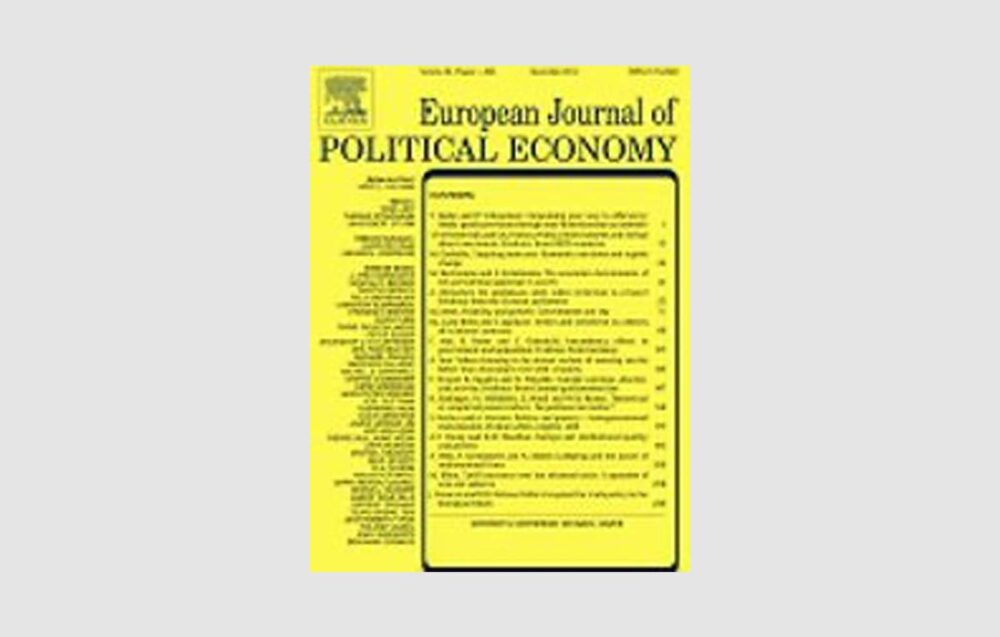We compare single round vs runoff elections under plurality rule, allowing for partly endogenous party formation. With large and sufficiently polarized groups of moderate voters, under runoff elections, the number of political candidates is larger, but the in- fluence of extremist voters on equilibrium policy and hence policy volatility is smaller, because the bargaining power of the political extremes is reduced compared to single round elections. These results are robust to several extentions.
Single Round vs Runoff Elections under Plurality Rule: A Theoretical Analysis
Joint with Massimo Bordignon and Guido Tabellini
